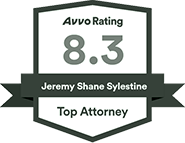Texas Heroin Charge Lawyer

If you or someone you know is facing a heroin charge in Texas, don't face it alone. At Cofer & Connelly, PLLC, we have the experience and expertise you need to navigate through the complex legal system. With over 25,000 criminal and family law cases under our belt, including more than 370 jury trials, we have a proven track record of success. Our team of seasoned attorneys brings decades of courtroom experience, having served as prosecutors, judges, and appointed officials. We understand the intricacies of the system, and we know how to deliver results. Contact us today at 512-991-0576 or visit our website to schedule a consultation regarding your heroin possession charge. Let us fight for your rights and provide the strong defense you deserve.
Heroin Possession Attorney Information Center
- What Is Heroin?
- Understanding The Heroin Possession Crime In Texas
- Understanding The Heroin Manufacturing, Delivery Crime In Texas
- Texas Controlled Substances Act: Heroin Charges And Drug-Free Zones
- Increased Penalties In Texas For Causing Serious Injury, Death With Heroin
- Possible Defenses To Heroin Charges In Texas
- Travis County, Texas Drug Diversion Court: A Second Chance For Heroin Offenders
- Frequently Asked Questions About Heroin Crimes In Texas
- Texas Heroin Attorney
What Is Heroin?
Heroin is a highly potent and addictive opioid drug derived from morphine, a natural substance found in opium poppy plants. It typically appears as a white or brown powder, although it can also be found as a sticky black substance known as black tar heroin. Heroin affects the central nervous system, producing intense feelings of euphoria, relaxation, and pain relief. However, it also carries significant risks and dangers, including overdose, respiratory depression, and the potential for long-term physical and psychological dependence. Heroin abuse can lead to severe health consequences and social issues, making it a highly dangerous and illegal substance.
Heroin is a highly regulated substance in the state of Texas and falls under Penalty Group 1 of the Texas Controlled Substances Act. If you're facing a heroin charge in Texas, it's crucial to understand the specific laws surrounding possession of this drug. Below, the heroin charge criminal defense lawyers at Cofer & Connelly, PLLC break down the relevant statute, Section 481.115 of the Texas Health & Safety Code, into simple terms to help you grasp the potential consequences you might face.
Understanding The Heroin Possession Crime In Texas
According to Section 481.115(a) of the Texas Health & Safety Code, it is generally illegal to possess heroin unless you obtained it through a valid prescription from a licensed practitioner or under other authorized circumstances outlined in the law. This means that possessing heroin without a legitimate prescription is considered an offense in Texas.
Penalties For Drug Possession
The severity of the offense and the associated penalties depend on the quantity of heroin you possess. Here's an overview of the penalties outlined in Section 481.115:
State Jail Felony
If the amount of heroin in your possession, including any adulterants or dilutants, is less than one gram, you can be charged with a state jail felony (Section 481.115(b)). State jail felonies carry potential imprisonment in a state jail facility for a period between 180 days and two years.
Third-Degree Felony
Possessing heroin weighing between one and four grams, including adulterants or dilutants, constitutes a third-degree felony (Section 481.115(c)). If convicted, you could face imprisonment for a term ranging from two to ten years.
Second-Degree Felony
If the quantity of heroin in your possession, including adulterants or dilutants, falls between four grams and 200 grams, it is considered a second-degree felony (Section 481.115(d)). Second-degree felonies carry imprisonment ranging from two to 20 years.
First-Degree Felony
Possessing heroin weighing between 200 grams and 400 grams, including adulterants or dilutants, is classified as a first-degree felony (Section 481.115(e)). If convicted, you may face a prison sentence ranging from five to 99 years, or even life imprisonment.
Enhanced Penalties
If the quantity of heroin in your possession, including adulterants or dilutants, exceeds 400 grams, the offense is subject to enhanced penalties (Section 481.115(f)). For such cases, punishment may include imprisonment for life or a term between 10 and 99 years, accompanied by a fine not exceeding $100,000.
Understanding The Heroin Manufacturing, Delivery Crime In Texas
Manufacture Or Delivery Of Heroin
According to Section 481.112 of the Texas Health and Safety Code, it is illegal for a person to knowingly deliver, manufacture, or possess with intent to deliver a drug listed in Penalty Group 1, which includes heroin. However, there are certain authorized exceptions outlined in this chapter.
The severity of the offense and the corresponding penalties depend on the amount of heroin involved in the offense, including any adulterants or dilutants mixed with the drug. Here are the different degrees of offenses and their associated consequences.
State Jail Felony For Lesser Amounts
If the heroin amount involved in the offense, including any adulterants or dilutants, is less than one gram, the offense is classified as a state jail felony. A state jail felony carries the possibility of imprisonment in a state jail facility for a term ranging from 180 days to two years.
Second Degree Felony
When the amount of heroin, including any adulterants or dilutants, is between one gram and four grams, the offense becomes a 2nd degree felony. This is a more serious charge than a state jail felony. If convicted, you could face imprisonment for a term ranging from two to 20 years.
First Degree Felony
For an amount of heroin, including any adulterants or dilutants, between four grams and 200 grams, the offense is elevated to a 1st degree felony. This is a significantly more severe charge with potentially harsher consequences. If found guilty, you could be sentenced to imprisonment for a term ranging from five to 99 years.
Greater Quantities: Enhanced Penalties
In cases involving larger quantities of heroin, the penalties become even more severe. If the amount of heroin, including any adulterants or dilutants, falls between 200 grams and 400 grams, the offense is punishable for life or for 10-99 years. Additionally, a fine of up to $100,000 may be imposed.
For quantities exceeding 400 grams, the offense carries the same potential imprisonment for life or a term ranging from 15 to 99 years, along with a higher maximum fine of $250,000.

Texas Controlled Substances Act: Heroin Charges And Drug-Free Zones
Drug-Free Zones: Definitions And Enhancements
Section 481.134 of the Texas Health and Safety Code focuses on drug-free zones. Let's break down the key points:
Defining Drug-Free Zones
This section starts by defining various terms related to drug-free zones:
- Minor: A person younger than 18 years of age.
- Institution of higher education: Public or private colleges, universities, technical institutes, medical or dental units, or other educational agencies.
- Playground: An outdoor facility intended for recreational activities that is open to the public and has three or more play stations for children.
- Premises: Real property, including buildings and related structures.
- School: Private or public elementary or secondary schools or day-care centers.
- Video arcade facility: A public facility primarily intended for using pinball or video machines, open to all, including those who are 17 or younger.
- Youth center: A recreational facility or gymnasium primarily used by individuals 17 or younger for athletic, civic, or cultural activities.
- General residential operation: A residential treatment center or other similar facility, as defined by Section 42.002 of the Human Resources Code.
Enhancements And Punishments
The statute then goes on to explain the enhancements and punishments associated with drug offenses committed in or near drug-free zones. Here are the key points:
Enhancements For Proximity To Drug-Free Zones
If you're charged with an offense that would otherwise be punishable as a state jail felony or a felony of the third degree under specified sections (such as Section 481.112 or 481.120), the severity of the offense increases based on the proximity to drug-free zones. The enhancements include:
- Within 1,000 feet of certain premises: If the offense occurred in, on, or within 1,000 feet of an institution of higher education, a youth center, or a playground, the offense is punishable as a felony of a higher degree.
- Within 300 feet of certain premises: If the offense occurred in, on, or within 300 feet of a public swimming pool or video arcade facility, the offense is punishable as a felony of a higher degree.
Additional Enhancement For Residential Treatment Centers
If the offense was committed by an unauthorized person 18 years or older in, on, or within 1,000 feet of premises owned, rented, or leased by a general residential operation operating as a residential treatment center, the offense is punishable as a felony of a higher degree.
Enhancements For School-Related Offenses
The statute further increases the minimum prison term and doubles the maximum fine for offenses committed:
- Within 1,000 feet of certain premises: If the offense occurred in, on, or within 1,000 feet of a school, a youth center, or a playground, the minimum prison term is increased by five years, and the maximum fine is doubled.
- On a school bus: If the offense occurred on a school bus, the minimum prison term is increased by five years, and the maximum fine is doubled.
Different Degrees Of Offenses
The statute also outlines the degrees of offenses for various drug-related actions committed within drug-free zones:
Third Degree Felony
Offenses punishable under specified sections are classified as a third degree felony if they occurred within 1,000 feet of certain premises, on a school bus, or if committed by an unauthorized person 18 years or older within 1,000 feet of premises owned, rented, or leased by a general residential operation operating as a residential treatment center.
Second Degree Felony
Offenses punishable as a third degree felony under specified sections become a second degree felony if they occurred within 1,000 feet of certain premises.
First Degree Felony
Offenses punishable as a 2nd degree felony under specified sections become a first degree felony if they occurred within 1,000 feet of certain premises.
Other Classifications And Exceptions
The statute also mentions various classifications and exceptions for offenses committed within drug-free zones, including private residences without minors present.
Concurrent Punishment And Other Criminal Statutes
The statute explicitly states that punishment enhanced under this section may not run concurrently with punishment for a conviction under any other criminal statute.
It's important to note that this summary is not exhaustive, and the actual statute may contain additional provisions and details. If you're facing a heroin charge or any drug-related offense, it's crucial to consult with a knowledgeable drug crimes attorney who can provide you with accurate legal advice based on your specific situation.
Increased Penalties In Texas For Causing Serious Injury, Death With Heroin
According to Section 481.141 of the Texas Health and Safety Code, if you are accused of manufacturing or delivering a controlled substance and it can be proven that someone sustained a serious injury or died from using that substance, the punishment for the offense will be increased by one degree.
To put it simply, if you are found guilty of manufacturing or delivering a controlled substance (such as heroin) and it can be proven that someone died or experienced serious bodily harm after using that substance, the consequences you face will be more severe.
Concurrent Sentences
Another important aspect of this statute is that if your criminal penalties are increased according to Section 481.141, the court is not allowed to order your sentence to run concurrently with a different sentence imposed on you for another offense. This means that if you are convicted under this statute, you may face separate sentences for the offense related to the controlled substance and any other crimes you may have been charged with.
It's worth noting that this provision overrides Article 42.08 of the Code of Criminal Procedure, which normally allows sentences to run concurrently for multiple offenses.
Conclusion
Facing a heroin charge in Texas can have serious consequences, particularly if someone sustained a serious injury or died from using the controlled substance you manufactured or delivered. Section 481.141 of the Texas Health and Safety Code increases the penalties for such offenses by one degree.
If you find yourself in this situation, it is crucial to consult with a knowledgeable attorney who can guide you through the legal process and help protect your rights. Understanding the laws and potential outcomes is essential for making informed decisions about your defense.
Possible Defenses To Heroin Charges In Texas
Based on Section 481.115 of the Texas Health & Safety Code, there are a few defenses available for a heroin charge in Texas. Here are some defenses outlined in the statute:
Emergency Medical Assistance Defense
Under Section 481.115(g), you may have a defense if you were the first person to request emergency medical assistance in response to a possible overdose during an ongoing medical emergency. To establish this defense, you must meet the following criteria:
- Make the request for medical assistance during an ongoing medical emergency.
- Remain on the scene until the medical assistance arrives.
- Cooperate with both medical assistance and law enforcement personnel.
However, if you have previously been convicted of a similar offense or if you made a previous emergency medical assistance request within the 18-month period leading up to the current offense, the defense might not apply.
Victim Of A Possible Overdose
If you were the victim of a possible overdose and emergency medical assistance was requested either by yourself or another person during an ongoing medical emergency, you may have a defense under Section 481.115(g).
It's important to note that there are limitations and exceptions to these defenses. The emergency medical assistance defense may not be available if:
- A peace officer was in the process of arresting you or executing a search warrant at the time the request for medical assistance was made.
- You were committing another offense, excluding specific offenses listed in the statute.
- You have a prior conviction or have been placed on deferred adjudication community supervision for an offense under the Texas Controlled Substances Act or related chapters.
- You successfully established the defense under the emergency medical assistance provision in a previous proceeding.
- Within the 18-month period preceding the current offense, you requested emergency medical assistance in response to a possible overdose of yourself or another person.
In addition to the defenses provided in the statute (Section 481.115) regarding emergency medical assistance, there may be other defenses that can be raised in a heroin possession case in Texas. While it's important to consult with a qualified attorney to assess the specific details of your case and determine the best defense strategy, here are some common defenses that may apply:
Unlawful Search And Seizure
If law enforcement conducted an unlawful search or seizure, violating your Fourth Amendment rights, it may be possible to challenge the admissibility of the evidence obtained. If the heroin was discovered through an illegal search, your attorney can argue that it should be excluded from evidence, which can weaken the prosecution's case.
Lack Of Knowledge Or Intent
To be convicted of possessing heroin, the prosecution must prove that you knowingly or intentionally possessed the substance. If you can demonstrate that you were unaware of the presence of heroin or that you lacked the intention to possess it, it may be a viable defense. This defense could apply if, for example, someone planted the heroin without your knowledge or if you were holding it temporarily for someone else.
Valid Prescription Or Authorization
If you had a valid prescription or authorization for the possession of heroin, such as for medical purposes or as part of a lawful research study, it can be a strong defense. It is crucial to provide proper documentation and evidence to support this defense.
Constructive Possession
To convict you of possession, the prosecution must prove that you had both knowledge and control over the heroin. If you can establish that you lacked exclusive control over the area where the drug was found, it may weaken the possession charge against you.
Chain Of Custody Issues
The prosecution must establish a proper chain of custody for the heroin as evidence. If there are gaps or inconsistencies in the documentation or handling of the evidence, it may weaken the prosecution's case and provide a potential defense.
Violation Of Miranda Rights
If law enforcement failed to inform you of your Miranda rights (such as the right to remain silent and the right to an attorney) during the arrest or interrogation process, any statements or admissions you made during that time may be inadmissible in court.
Entrapment
If you can demonstrate that you were induced or coerced by law enforcement into committing the offense, you may assert an entrapment defense. Entrapment occurs when law enforcement encourages or persuades someone to engage in criminal activity they would not have otherwise pursued.
It's essential to remember that the availability and success of these defenses can vary depending on the specific circumstances of your case. Consulting with an experienced criminal defense attorney will provide you with the best guidance and help determine which defenses are most applicable to your situation. They will work with you to build a strong defense strategy tailored to your case and protect your rights throughout the legal process.

Travis County, Texas Drug Diversion Court: A Second Chance For Heroin Offenders
If you're facing a heroin charge in Travis County, Texas, there's a program that might offer you a second chance and an opportunity to turn your life around. It's called the Drug Diversion Court, and below, we'll break down what you need to know about this program.
Am I Eligible For Drug Diversion Court?
To be eligible for the Drug Diversion Court, you must have been arrested in Travis County for a felony drug-related offense. The District Attorney's Office will conduct a thorough review of your criminal history to determine if you meet the legal requirements for the program. If you're deemed eligible, you'll also need to undergo a clinical assessment to determine if you're clinically appropriate for the program.
If you're interested in the program but don't meet the legal requirements, your attorney should contact the District Attorney's Office on your behalf.
It's important to note that if the clinical assessment reveals that alcohol is your primary drug of choice, you won't be considered appropriate for the program.
What Happens Next If I'm Eligible For Drug Diversion Court?
Once you're found eligible for the Drug Diversion Court program, you'll be scheduled for an appointment to receive program information. During this appointment, the clinical assessment will take place. If you're clinically eligible, you'll be given a court appearance date and time. The presiding Judge will then decide whether to accept or deny your case for program admission.
What Are The Advantages Of Participating In Drug Diversion Court?
Participating in the Drug Diversion Court can offer several benefits:
- Restoration of family and community ties: By successfully completing the program, you can rebuild your relationships with loved ones and reintegrate into your community.
- Achievement of sustained sobriety: The program aims to help you overcome your addiction and maintain long-term sobriety.
- Dismissal of criminal charges: If you successfully complete the program, your criminal charges will be dismissed.
How Long Is The Drug Diversion Court Program?
The Drug Diversion Court program lasts a minimum of 12 months. This duration allows for comprehensive treatment and monitoring to support your recovery journey.
Once I'm In The Program, How Does It Work?
Once you're formally accepted into the program by the presiding Judge, you'll attend an orientation session that explains all the program requirements. Here's an overview of how the program works:
Court Appearances
The frequency of court appearances will depend on your phase advancement within the program, which can range from weekly to bi-weekly or monthly. If there's a regression in your progress, you may have to attend court more frequently.
Case Management
After program acceptance, you'll have an initial appointment with your assigned Case Manager within five working days. The Case Manager will support your treatment progress, ensure program compliance, and connect you with community services if needed.
Orientation
Within 48 hours of program acceptance, you will be required to attend an orientation session. This session provides an overview of the program requirements and gives you an opportunity to ask any questions you may have in a relaxed atmosphere.
Treatment Interventions
You can expect to attend treatment sessions, either in an outpatient or inpatient (residential) setting. The program offers in-house treatment and follows an evidence-based structured curriculum. In some cases, with court approval, you may be referred to treatment services within the community.
Graduation
When you've successfully completed the program, you'll have a final appearance before the judge. This is a special occasion where your accomplishments are acknowledged and celebrated. You'll also receive final instructions from the Court, Defense Attorney, and Prosecutor regarding the dismissal of your case(s).
Remember, the Drug Diversion Court offers you an opportunity to turn your life around, rebuild relationships, and overcome addiction. It's a chance to embrace a brighter future and leave your criminal charges behind.
Frequently Asked Questions About Heroin Crimes In Texas
What Is The Penalty For Possessing Heroin In Texas?
The penalty for possessing heroin in Texas varies depending on the amount in possession. It can range from a state jail felony, carrying a potential imprisonment of 180 days to 2 years for possession of less than one gram, to a first-degree felony, which can result in a prison sentence of 5 to 99 years, or even life imprisonment, for possession of 200 grams to 400 grams or more.
Can I Be Charged With Possession Of Heroin If I Have A Valid Prescription?
No, you cannot be charged with possession of heroin if you obtained it through a valid prescription from a licensed practitioner acting within the scope of professional practice. However, it's crucial to ensure that you adhere to the conditions and limitations of your prescription to avoid any legal issues.
Is There A Defense Available For Possession Of Heroin During A Medical Emergency?
Yes, there is a defense available under specific circumstances. If you are the first person to request emergency medical assistance in response to a possible overdose during an ongoing medical emergency, remain on the scene until medical assistance arrives, and cooperate with medical and law enforcement personnel, you may have a defense against the charges. However, this defense has certain limitations and may not apply in all situations.
Can The Emergency Medical Assistance Defense Be Used If I Have A Criminal History Or Have Made A Previous Emergency Request?
The emergency medical assistance defense may not be available if certain conditions apply. For example, if you have a previous conviction or have been placed on deferred adjudication community supervision for an offense under the Texas Controlled Substances Act or related chapters, the defense might not apply. Additionally, if you made a previous emergency medical assistance request within the 18-month period preceding the current offense, the defense may not be available.
What Does It Mean For Heroin To Be Listed Under Penalty Group 1 In The Texas Controlled Substances Act?

The Texas Controlled Substances Act categorizes drugs into different penalty groups based on their potential for abuse and medical value. Heroin is classified under Penalty Group 1, which includes substances considered highly dangerous and addictive with no recognized medical use in the United States.
What Are The Penalties For Heroin Manufacturing In Texas?
The penalties vary based on the degree of the offense, which is determined by the amount of heroin involved. Here is a breakdown of the penalties:
- Less than one gram: State jail felony that is punishable by 180 days to 2 years in a state jail facility.
- Between one gram and four grams: Felony of the second degree, carrying a potential sentence of 2-20 years in prison.
- Between four grams and 200 grams: Felony of the first degree, with potential imprisonment ranging from 5 to 99 years.
- Between 200 grams and 400 grams: Punishable by imprisonment for life or a term of 10 to 99 years, along with a fine up to $100,000.
- Over 400 grams: Punishable by imprisonment for life or a term of 15 to 99 years, with a maximum fine of $250,000.
Can I Face Multiple Charges For A Single Heroin Manufacturing Offense In Texas?
It is possible to face multiple charges related to a single heroin offense. For example, if you are caught manufacturing and delivering heroin, you may be charged separately for each activity. The penalties for each charge would be determined based on the amount of heroin involved in each specific offense.
What Should I Do If I'm Facing A Heroin Charge In Texas?
If you are facing a heroin charge or other offense under Texas law, it is crucial to seek legal representation from an experienced criminal defense attorney, given the harsh penalties of a conviction. They can provide you with personalized guidance, assess the evidence against you, explore potential defenses, and work to protect your rights throughout the legal process. It is important to consult a legal professional who can provide advice based on your specific circumstances.
Texas Heroin Attorney
Heroin possession charges in Texas can be overwhelming, but you don't have to face it alone. Cofer & Connelly, PLLC is here to help you every step of the way. With an impressive record of handling over 25,000 criminal and family law cases, including 370 jury trials, the law office’s experienced heroin possession attorneys have the knowledge and skills necessary to protect your rights. Our drug crime defense team consists of former prosecutors, judges, and appointed officials who have a deep understanding of the legal system. We have been appointed to offices by Presidents, Governors, and Mayors, showcasing our reputation and expertise. When you choose us, you choose a team that knows how to navigate the complexities of your case and deliver favorable outcomes. Don't wait, call a knowledgeable criminal defense attorney at Cofer & Connelly, PLLC 512-991-0576 or visit our website now to schedule a consultation and let us provide you with the exceptional legal representation you need.

-
"Excellent all around. Highly recommend."W. N.
-
"I am eternally grateful for all of the efforts they put in to go above and beyond for everyone they help."Former Client
-
"They really listen to and care about their client's needs and consistently fight for the best outcome! I am eternally grateful for all of the effort they put in to go above and beyond for everyone they help."C.D.
-
103 Years of Experience































